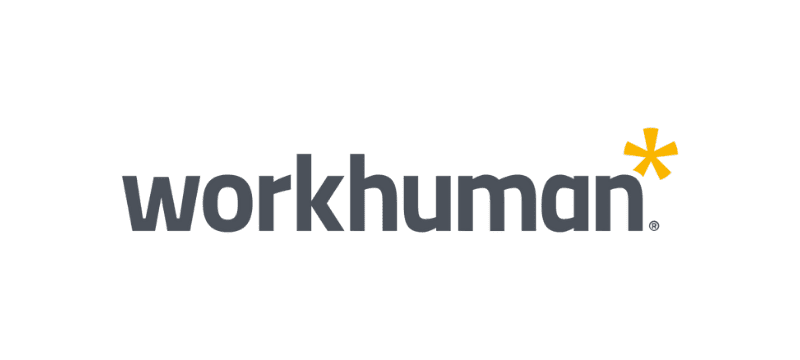Words Matter: How to Reform Workplace Equity Practices with Unconscious Bias Micro-Coaching
Learn more about microaggressions and how they can impact employee wellbeing over time.
Find out how to concurrently identify and mitigate unconscious bias in workplace communication.
Create more equitable and conscious communication within your workplace.


With DE&I a top employer concern, many organizations are looking at ways to boost belonging, improve inclusion and make their business cultures more equitable. Yet, recent Workhuman data shows that even in positive work environments bias still prevails.
To help understand how to eliminate bias, and where technology and coaching can play a role in doing so, Jon Kennard, editorial content manager at UNLEASH, is joined by Navin Jain, product evangelist at Workhuman, to discuss this important topic.
Watch on-demand to:
- Understand more about the role that AI can play in shaping cultures of belonging.
- Learn more about micro-coaching and how it can benefit your organization.
- Get the latest on the role technology can play in shaping better communication, inclusion, and diversity.
Done right, the right words, the right message delivering in a timely manner can have all the positive lifelong impact on others.” – Navin Jain, product evangelist at Workhuman
Praise, disruption, and the benefit of thank you
Giving out praise at work — such as giving positive feedback for how an employee delivered a presentation — might seem to be an innocuous good thing. However, it can undermine the wellbeing of people — especially underrepresented groups. And Workhuman has seen this borne out in the data.
Yet, as Jain explained on the webinar, with everything changing in the world at work — indeed, Workhuman’s founder and CEO has co-written a book in which he states “everything is changing in the way work is managed” — many companies are having to react to employees as they rethink priorities. Especially important amidst economic uncertainty. As such, businesses need to be more resilient and many are turning to D, E & I and belonging to achieve this, believing it will drive better community and connection and thus better talent and productivity outcomes.
To do this, and as Workhuman data shows, many are leaning toward the positive impact of gratitude — Workhuman data shows that gratitude can result in less stress and more trust in leadership — understanding that thanking, talking, and celebrating can be at the base of a good culture.
In fact, the data show that a simple thank you can mean that employees are less likely to look for jobs, more likely to be engaged, and less likely to be burnt out. As such, employers can boost retention, engagement, and brand recognition. In fact, they can also boost business results with the data showing that cultures of recognition can save a 10,000-person employer $ 16 million annually via saved recruitment costs.
Talking between managers and reports can also boost psychological safety and trust but many aren’t doing this. Even something as simple as a weekly check-in can help employees feel like they have a development pathway within an organization, that they belong, and that they have a purpose too. All are linked to better retention and purpose.
But….
However, even if a company has a positive communication and recognition practice it can be undermined by unconscious bias. As such, businesses must do more to understand how their communications could be problematic. It’s an area Workhuman is interested in and believes that in-the-moment coaching and learning, delivered via technology, can help improve recognition even further.
Jain explained that this approach to eliminating unconscious bias — whereby AI-enabled tools give employees and managers in-the-moment feedback on the bias that might be implicit in their communications — is more effective than one-off anti-bias training. It is also likely needed: with 20-30% of recognition, even in positive work environments, having a bias in it.
In fact, many individuals might not know that their communication has ableism, gender bias, and age bias in it. These constitute microaggressions and can result in employees not bringing their whole selves to work as a result of feeling psychologically unsafe. It can make new joiners feel like outsiders and undermine good DE&I practices.
Jain adds that the Workhuman approach can also help ensure that individuals aren’t becoming burnt out and improve work-life balance by helping managers catch subtexts in their praise. For example, it might flag a manager if they’re praising someone for staying late or working over weekends — practices which most in HR know can result in burnout and then an employee leaving.
Positively, Jain says that the Workhuman approach is delivering results. They’ve seen over half of the users remove bias in their communications as a result of their tool being used and delivering micro-coaching. As one VP of Global D&I said: “It helps us recognize people and ensure we’re using words that are inclusive and instill confidence and it really helps people feel good about their reward.”
Others are thinking about communications in ways they wouldn’t have before. This is exactly where HR and managers must go in order to retain, engage and attract all manner of diverse groups on a difficult talent landscape.
